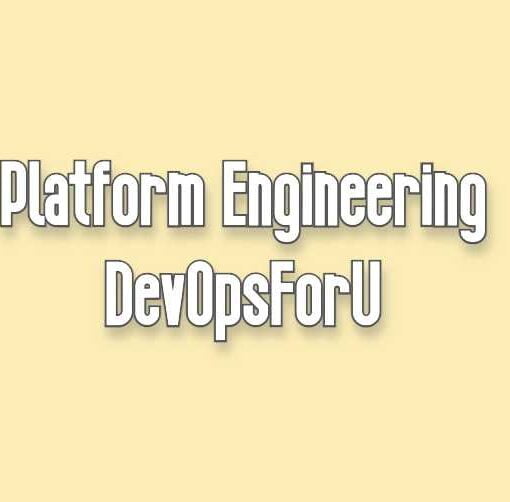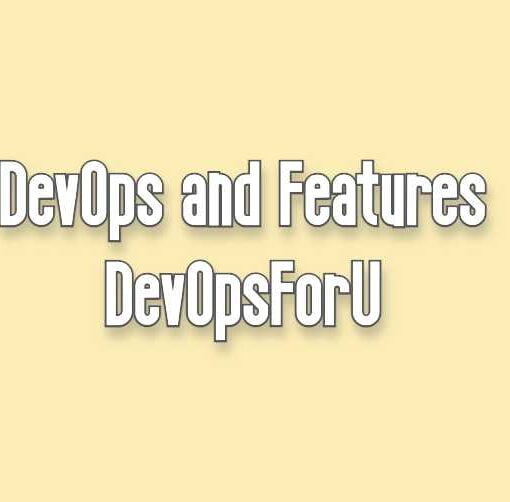There are several tools that are commonly used in DevOps to automate and streamline various processes. Not all DevOps tools are required to learn until necessary or used by your organization But some of the top DevOps tools to start a career are the following

1. Monitoring and Observability
Alertmanager, Prometheus, and Grafana are widely considered to be some of the best DevOps tools for monitoring and observability.
Prometheus
Prometheus is an open-source monitoring system that collects and stores metrics from various sources, such as servers and applications. It provides a simple and powerful query language, which makes it easy to retrieve and analyze data.
Alertmanager
Alertmanager is an open-source alerting system that can be used in conjunction with Prometheus. It allows you to set up alerts based on Prometheus metrics, and it can send notifications via various channels, such as email and Slack.
Grafana
Grafana is an open-source data visualization and monitoring tool that can be used to create dashboards and alerts based on Prometheus data. It provides a simple and intuitive interface, which makes it easy to explore and analyze your data.
These three tools work together to provide a complete monitoring and observability solution for DevOps teams. Prometheus is used to collect and store data, Alertmanager is used to set up alerts and send notifications, and Grafana is used to visualize the data and create dashboards.
Prometheus, Alertmanager and Grafana are widely adopted, open-source tools that are well suited for monitoring and observability of various types of systems and applications. They provide a powerful and flexible solution for DevOps teams looking to improve their monitoring and observability capabilities. Their ability to integrate with other DevOps tools like Kubernetes and Istio makes them even more valuable to DevOps teams.
Configuration Management tool
Ansible
Ansible is considered one of the best DevOps tools available in the market. Its simple, easy-to-use language, agentless architecture, high scalability, strong community support, wide adoption and flexibility makes it a popular choice for automating tasks and managing configurations in a DevOps environment. Additionally, its support for Windows and other OS gives it an edge over other configuration management tools. These features make Ansible a powerful tool that can help streamline the development and operations process and improve the overall efficiency of a DevOps pipeline.
Infrastructure as code (IaC) tool
Terraform
Terraform is an open-source infrastructure as code (IaC) tool that allows you to describe and provision your infrastructure using a simple, high-level configuration language. It can be used to provision resources on multiple cloud providers such as AWS, Azure, GCP, and more.
Terraform is a popular choice for DevOps teams because of its ability to automate the provisioning and management of infrastructure resources. It allows teams to define their infrastructure using code, which can be versioned, tested and reused, making it easier to manage and maintain.Some of the key features of Terraform that make it a great DevOps tool include:
- Provider agnostic: Terraform can be used with multiple cloud providers, making it a versatile choice for different deployment scenarios.
- Modularity: Terraform allows you to organize your infrastructure into reusable modules, making it easy to manage and scale.
- State management: Terraform keeps track of the current state of your infrastructure, allowing you to easily make updates or rollbacks.
- Dry-run: Terraform allows you to preview the changes that will be made to your infrastructure before applying them.
- Collaboration: Terraform allows multiple teams to work on the same infrastructure and manage access control to different resources.
- Flexibility: Terraform can be integrated with other tools such as Ansible and Jenkins to create a comprehensive DevOps pipeline.
Terraform enables DevOps teams to automate their infrastructure provisioning and management process, reducing the time and effort required to manage and maintain their infrastructure. This can help teams to focus on more important tasks such as developing and deploying code.
Cloud Computing Platforms
GCP (Google Cloud Platform), Azure (Microsoft Azure), and AWS (Amazon Web Services) are cloud computing platforms that provide a wide range of services for various aspects of DevOps, including infrastructure as a service (IaaS), platform as a service (PaaS), and software as a service (SaaS). They are considered some of the best DevOps tools because they allow teams to easily manage and scale their infrastructure and applications.
Some of the key benefits of using these platforms for DevOps include:
- Scalability: They allow teams to easily scale their infrastructure and applications to meet changing demands.
- Automation: They provide tools and services for automating various aspects of the DevOps process, such as infrastructure provisioning, continuous integration, and deployment.
- Flexibility: They offer a wide range of services that can be used to build and deploy applications, allowing teams to choose the best tools and services for their specific needs.
- Security: They provide robust security features and services to protect your application and data.
- Cost-effective: They offer pay-as-you-go pricing, which means teams only pay for the resources they use.
- Integrations: They can be integrated with other DevOps tools such as Ansible, Jenkins, and Terraform to create a comprehensive DevOps pipeline.
Each of these platforms has its own set of features and capabilities, and the choice of which one to use may depend on the specific needs of the organization and the application, such as compliance, scalability, and cost concerns. They are widely adopted across different industries, making them great tools for software development and DevOps.
Containerization Technologies
Docker, CRI-O and Podman are containerization technologies that allow teams to package, distribute, and run applications in isolated environments. They are considered some of the best DevOps tools because they provide a consistent and portable way to run applications, making it easier to manage and scale infrastructure.
Some of the key benefits of using these technologies for DevOps include:
- Isolation: They allow teams to run applications in isolated environments, ensuring that the application and its dependencies are not affected by other applications running on the same machine.
- Portability: They allow teams to package applications and their dependencies together, making it easy to move and run applications across different environments.
- Scalability: They allow teams to easily scale their applications by running multiple instances of a containerized application on the same machine.
- Automation: They can be integrated with other DevOps tools such as Ansible, Jenkins, and Terraform to create a comprehensive DevOps pipeline.
- Resource efficiency: Containers are lightweight and fast to start, which makes them more efficient to use than virtual machines in terms of system resources.
- Security: They provide a level of isolation between applications and the host systems, which helps to reduce the attack surface and improve security.
Docker is the most popular and widely used containerization technology, it is an industry standard and provides a wide range of features and functionalities. While CRI-O and Podman are more lightweight and focused on Kubernetes environments, they are designed to work with Kubernetes and are optimized for performance and security. The choice of which one to use may depend on the specific needs of the organization and the application.
By using these technologies, teams can run applications in a consistent and portable way, making it easier to manage and scale their infrastructure. They are widely adopted across different industries, making them great tools for software development and DevOps.
Container Orchestration System
Kubernetes
Kubernetes is an open-source container orchestration system that can be used to automate the deployment, scaling, and management of containerized applications. It provides a platform-agnostic way to deploy and manage containerized applications at scale.
Kubernetes provides several features that make it a great tool for DevOps teams, including:
- Automated scaling: Kubernetes can automatically scale up or down the number of replicas of a containerized application based on resource usage, ensuring that the application is always running optimally.
- Self-healing: Kubernetes can automatically detect and replace failed containers, ensuring that the application is always running and available.
- Service discovery: Kubernetes allows you to easily discover and connect to services running on different nodes in a cluster.
- Automated rollouts and rollbacks: Kubernetes makes it easy to deploy new versions of an application and roll back to previous versions if needed.
- Portability: Kubernetes can run on different cloud providers, on-premises, or in hybrid environments, making it a versatile choice for different deployment scenarios.
- Flexibility: Kubernetes can be used with different container runtimes, such as Docker and Containerd, and can be integrated with other tools such as Ansible and Jenkins to create a comprehensive DevOps pipeline.
Kubernetes is widely adopted across different industries and is known for its reliability, scalability and flexibility. With Kubernetes, DevOps teams can easily manage, scale and deploy their applications in a consistent and efficient way.
Automation tool
1. Jenkins
Jenkins is a powerful tool that can help teams automate their software development process and improve the overall efficiency of their DevOps pipeline.
Jenkins is an open-source automation server that can be used to automate various parts of the software development process, including building, testing, and deploying code. Its popularity is due to its flexibility and extensibility, which allows it to be integrated with a wide range of tools and plugins.
Jenkins also allows for integration with other tools such as Ansible, Docker, and Kubernetes which enable teams to create a comprehensive DevOps pipeline. Jenkins is used by many organizations across different industries and is known for its reliability and flexibility.
2. GitOps
GitOps is not a standalone tool, but rather a methodology that leverages Git as a single source of truth for declaratively managing and deploying applications and infrastructure. It is considered a best practice in DevOps, as it allows teams to use Git as a central repository for storing, versioning and managing their entire infrastructure and application deployment process.
Some of the key benefits of using GitOps include:
- Collaboration: Git allows multiple teams to work on the same infrastructure and application deployment process, making it easier to manage and maintain.
- Auditability: Git allows teams to keep track of all changes made to the infrastructure and application deployment process, making it easy to audit and trace any issues.
- Automation: GitOps allows teams to automate their infrastructure and application deployment process, reducing the time and effort required to manage and maintain their infrastructure.
- Flexibility: GitOps can be integrated with other tools such as Ansible, Jenkins, and Terraform to create a comprehensive DevOps pipeline.
While GitOps is not a tool, it is a practice that can be implemented using a variety of tools and it’s widely adopted across different industries. GitOps pipeline can be built using tools such as ArgoCD and Flux.
These tools are widely used by DevOps teams and can be used in combination to create a robust and efficient DevOps pipeline. However, the best tool for a particular organization will depend on their specific needs and requirements.
This article is created based on experience but If you discover any corrections or enhancements, please write a comment in the comment section or email us at contribute@devopsforu.com. You can also reach out to us from Contact-Us Page.
Follow us on LinkedIn for updates!






One thought on “Top DevOps Tools to start a career”